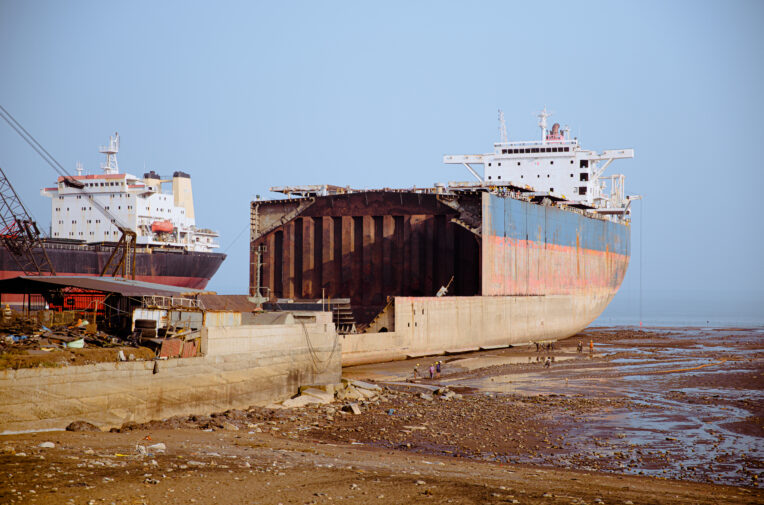
Shipyard workers dismantling a vessel in Alang, India. Dozens of UK-linked vessels have been scrapped over the past half-decade in India, Bangladesh and Pakistan. Photo: Sanjay Tomar/Greenpeace
Dozens of UK-linked vessels scrapped on South Asian beaches, despite ban
UK rules prohibit sending old vessels to the shipbreaking ports of South Asia. But those rules are easy to circumvent, an Unearthed investigation has found
Dozens of UK-linked vessels scrapped on South Asian beaches, despite ban
UK rules prohibit sending old vessels to the shipbreaking ports of South Asia. But those rules are easy to circumvent, an Unearthed investigation has found
Shipyard workers dismantling a vessel in Alang, India. Dozens of UK-linked vessels have been scrapped over the past half-decade in India, Bangladesh and Pakistan. Photo: Sanjay Tomar/Greenpeace
Dozens of UK-linked vessels have been scrapped over the past half-decade in India, Bangladesh and Pakistan, despite the ports of those countries being prohibited under UK shipbreaking rules.
An Unearthed investigation has found that more than 40% of the vessels sent for recycling between 2018 to 2022 that were owned or run by UK-linked companies ended up in shipbreaking yards in South Asia.
Under UK and EU rules, there are no approved shipbreaking yards in South Asia, where the ship recycling industries have a long history of worker deaths and injuries, poor working conditions and weak environmental standards. This means that no vessel sailing under a UK flag – or the flag of an EU country – can legally be sent to a South Asian yard for recycling.
These companies need to think about the real consequences of this toxic trade from the global north to the global south.
Sara Costa, South Asia policy officer for NGO Shipbreaking Platform
However, the widespread use in the maritime industry of “flags of convenience” – a practice under which a ship is registered to a country other than that of its owner – means these rules are easy to circumvent.
Sara Costa, South Asia policy officer for the campaign group NGO Shipbreaking Platform, which gathered the data analysed by Unearthed, said that shipbreaking legislation should be extended to cover the “beneficial ownership” of vessels, rather than being based only on flag registries. This, she said, would help to hold ship owners accountable for the way their vessels were recycled, as well as the middlemen who buy and sell vessels for scrap.
“UK shipping companies that scrap their end-of-life assets on dangerous and dirty South Asian beaching yards make huge profits at the expense of unskilled migrant workers, vulnerable local communities and the environment,” she told Unearthed.
She added: “These companies need to think about the real consequences of this toxic trade from the global north to the global south. They should also be held responsible for all of the asbestos victims, for the workers that are unable to work again, for the families of deceased workers, for the contamination of the environment.”
Shipbreaking is recognised as one of the world’s most dangerous occupations and a “major global occupational and environmental health problem,” by the International Labour Organization of the United Nations.
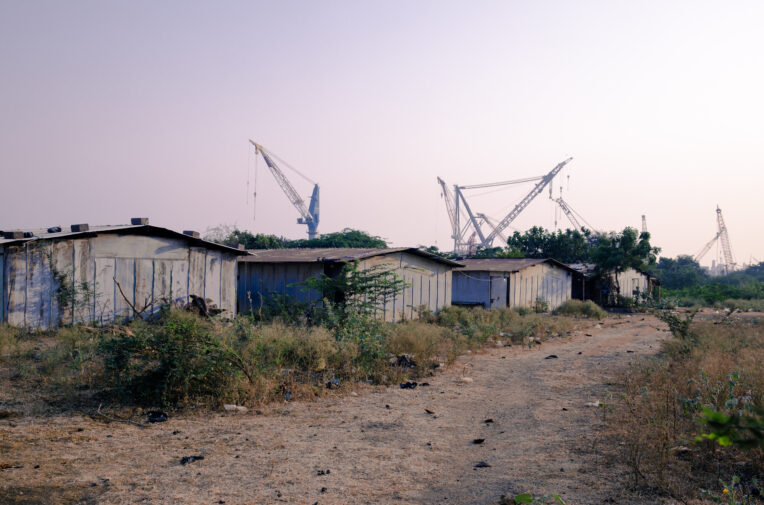
“There are shipyards in Europe that can break ships and dispose of toxic waste safely, but they tend to be expensive,” Walton Pantland, director of shipbreaking and shipbuilding at global union federation IndustriALL, which campaigns for safe and sustainable conditions for shipbreaking workers, told Unearthed. “So many shipowners send their ships to South Asia, where until recently the industry was unregulated.
“Ships would be run aground and taken apart on the beach, and it created all sorts of problems, like environmental devastation from toxic waste, asbestos and oil spilling out of the ships, but also with workers dying on the job. With the ratification of the Hong Kong Convention this year, we hope we are moving away from that way of breaking ships.”
The Hong Kong Convention, which comes into force in 2025, is a UN convention aimed at ensuring the shipbreaking industry does not pose “unnecessary risk” to human health or the environment. It will require signatory countries to ensure that shipbreaking yards in their territories are built and run in a “safe and environmentally sound manner”.
In recent years, partly in anticipation of this convention, a number of South Asian shipbreakers – particularly some in India, which ratified the convention in 2019 – have improved working conditions and environmental practices at their yards. However, none have yet been found to meet EU or UK standards for safe and sustainable shipbreaking. A group of Indian yards assessed for inclusion on the EU’s approved list in 2019 and 2020 was rejected, for reasons including lack of adequate medical facilities, and inability to ensure the safe treatment of certain kinds of waste.
And for many, the South Asian shipbreaking industry remains a dangerous job. Between 2018 and 2022, according to Shipbreaking Platform records, at least 21 workers died in the shipbreaking port of Alang, India, 81 in Chattogram, Bangladesh, and three in Gadani, Pakistan.
Unearthed’s analysis found that over the same period 33 UK-linked vessels were sent to South Asia for shipbreaking: 27 to Alang, three to Chattogram, and three to Gadani.
Almost half of those vessels had previously been used in the offshore oil and gas industry. The UK-linked companies that saw the greatest number of their vessels recycled in South Asia during this period included the offshore oil contractors Valaris and Subsea7, and the UK headquartered shipping firm Swire and Sons.
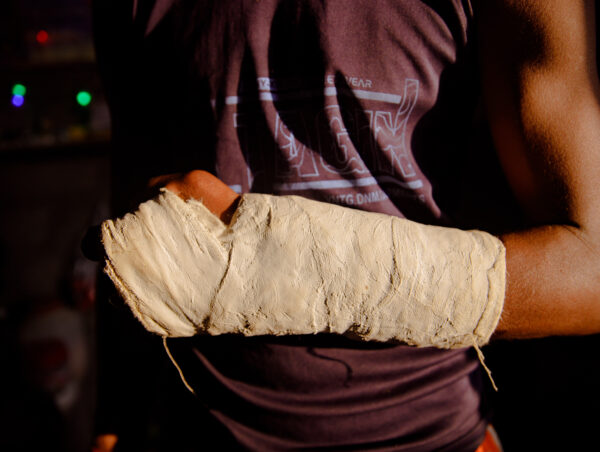
A spokesperson for Swire said: “There are many ship-recycling facilities in Alang, and we are committed to only working with those that demonstrate a willingness to raise their safety standards in line with international best practice.”
The offshore oil and gas contractor Subsea7, which saw three of its former vessels scrapped in Alang during the period, told Unearthed: “Subsea7 aims to operate a vessel for its entire useful life, investing in new equipment and enhancements to extend its life where possible. When a vessel reaches the end of life, we are committed to recycling it responsibly.”
Valaris, which was UK-registered and headquartered until May 2021, saw 11 of its former drilling rigs and platforms scrapped in Alang during the period, including rigs that had formerly pumped oil for Shell in Malaysia and Total in Brunei. Valaris did not respond to multiple requests for comment.
Flags of convenience
Other companies whose old ships were broken up in South Asia over the past half-decade told Unearthed that they had not sent their vessels for shipbreaking, but rather had sold them to “third parties” who had later sold them for scrap. Some argued that they could not be held responsible for what their buyers did with their ship after sale.
But campaigners said the vast majority of vessel sales to the shipbreakers of South Asia were done with the help of scrap dealers known as “cash buyers”. These middleman companies specialise in buying and selling vessels that are coming to the end of their working life.
“Cash buyers are a bit like second-hand car dealers,” says Pantland. “They buy up old ships and then they become the owner and sell it to a shipyard for breaking.”
That means, say campaigners, that in most cases it is a cash buyer, not the UK- or EU-based company that ran the ship during its working life, who is the final registered owner of a vessel before it reaches the shipbreaking yard. These companies typically re-flag the vessels before their final trip to the breakers’ yards, making use of flags of convenience from registries that offer discounted packages for vessels being sold for scrap.
The flag registries of the tiny island states of Saint Kitts and Nevis, Palau and Comoros have all come to specialise in cheap, short-term “single voyage” registrations, which offer vessels a new flag just for the final journey to the breaker’s yard.
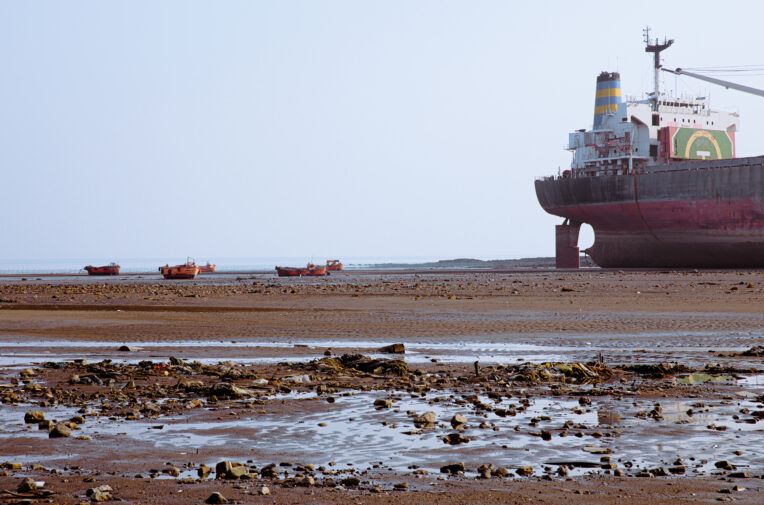
Analysis by Unearthed, found that 23 of the 33 UK-linked vessels that ended up in South Asian shipbreaking yards (70%) were reflagged to flag-of-convenience registries less than a year before being scrapped. All but five of them were reflagged to Saint Kitts and Nevis, Palau or Comoros.
These registries are grey or black-listed by the Paris Memorandum of Understanding, of which the UK is a member, and are recognised as flags of convenience due to poor implementation of international maritime standards.
According to Shipbreaking Platform’s Costa, using cash buyers in this way can help shipowners to get the highest price for their redundant vessels, and “avoid legal, financial and other risks related to selling hazardous ships for breaking”.
“An end-of-life sale with the help of a cash buyer usually includes a change of flag to one of the typical last voyage registries, such as St Kitts and Nevis, Palau and Comoros, and the registration of the vessel under a new name and a new post-box company,” she told Unearthed.
“All these changes are intended to undermine accountability, the purpose being to conceal corporate structures and exploit loopholes linked to the enforcement of international maritime and environmental legislation.”
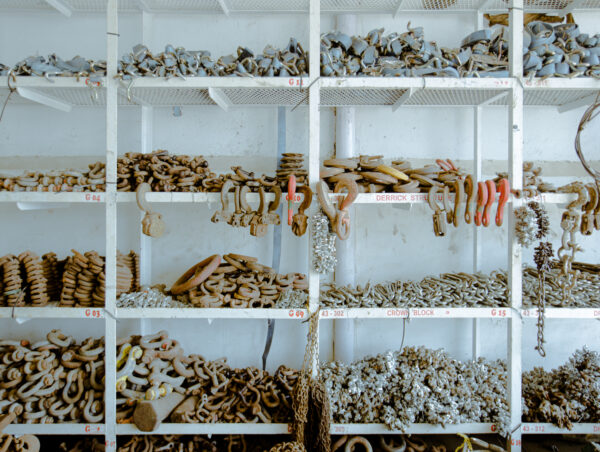
Under UK and European Union ship recycling rules, vessels flying an UK or an EU-member state flag are required to be recycled at an approved ship recycling facility. None of these are located in South Asia.
Despite this, more than 70% of global ship demolitions happen in Bangladesh, India and Pakistan.
Hundreds of chemical hazards
Once a scrap vessel arrives at a South Asian shipyard, valuable heavy metals like steel, iron and aluminium are extracted for recycling, serving as a lucrative source of raw materials in the region.
Black oil and other toxic substances released from scrap ships leach into local soil and water.
Syeda Rizwana Hasan, Executive Director of the Bangladesh Environmental Lawyers Association
This disassembly process is highly toxic. According to research published in the journal Marine Policy, it releases “hundreds of chemical hazards, including mercury, lead, asbestos, Polychlorinated Biphenyls, ozone-depleting substances, antifouling pesticides, and residual fuels,” which, if not handled properly “pose great dangers” to both the environment and public health.
High concentrations of heavy metals like copper, lead and zinc have been found in sediments along the beaches of Bangladesh’s breaking yards, harming both animals and plants.
The shipbreaking yards in India, Bangladesh and Pakistan are all based on tidal flats with heavy tides. A ship destined for the breakers yard is driven directly onto the shore with the high tide, then anchored and chained to the ground. In many cases, the vessel will then be taken apart directly on the beach, in a widely-criticised process called “beaching.”
This method, which is now most prevalent in Bangladesh and Pakistan yards, can allow toxins and hazardous materials to leak from vessels and flow directly into the beach soil and sea water, without means of containment or remediation.
“Beaching tends to be the most environmentally and socially damaging approach to ship recycling,” said Syeda Rizwana Hasan, lawyer and executive director of the Bangladesh Environmental Lawyers Association.
“In Bangladesh, old ships containing these materials are being cut up by hand, on open beaches, under inhumane working conditions. Black oil and other toxic substances released from scrap ships leach into local soil and water.”
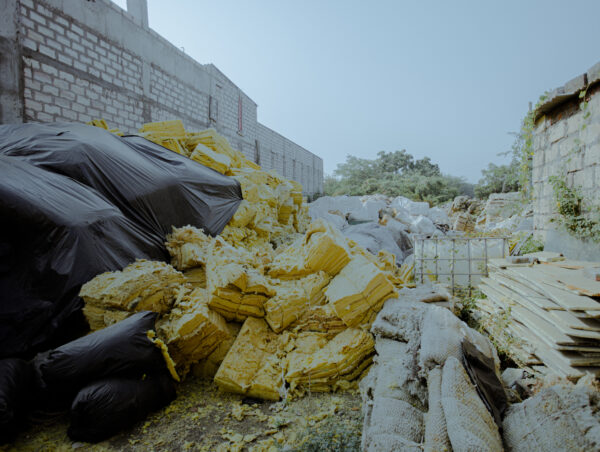
Some yards in India have improved standards by cementing an area where the secondary cutting of ship parts is done. Under this system, a large part of the ship is cut away and transferred to the cement flooring to be further dismantled, removing opportunities for waste to leak into the sea or sand. This has been coupled with improvements in waste storage and disposal.
According to a 2022 report by Chemistry World, concentrations of heavy metals in the Alang seawater are falling following improvements at some yards. However, by last year, only around half the yards at the port had started using the new facilities. And according to Shipbreaking Platform, “concerns persist related to the continued primary cutting [of vessels] on unprotected tidal mudflats; the lack of proper accommodation and medical facilities for workers; and poor downstream waste management”.
The European Commission has conducted inspections at six shipyard facilities in India seeking inclusion in the European List of ship recycling facilities. However, evaluators could not confirm their compliance for reasons including inadequate medical facilities in Alang and the inability to handle certain types of downstream waste.
EU inspectors have not visited Alang’s shipyards since 2020 and further inspections have been put on hold since an amendment to the Basel Convention – a global environmental agreement to control the transboundary movements of hazardous wastes and their disposal – outlawed the shipment of hazardous waste to developing countries in 2019.
This is set to change as a new provisional agreement on shipments of waste issued in November this year by the EU Council and Parliament could allow waste suitable for recycling to be exported from the EU to non-OECD countries only when it is ensured that it can be dealt with in a sustainable manner.
The European Community Shipowners’ Association expects inspections to resume in 2024, potentially opening the door for some Indian shipyards to be approved.
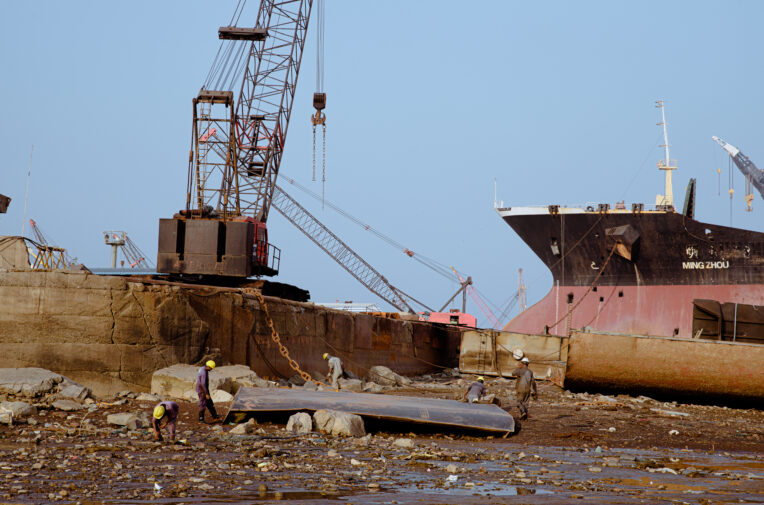
‘Green’ ship recycling
The main international convention to regulate safer ship recycling is the Hong Kong Convention.
Effective from June 2025, the convention aims to ensure that ships being recycled do not pose any unnecessary risk to human health and safety or to the environment. Bangladesh and Pakistan joined this year and India is already a signatory.
The convention will require recycling-bound ships to carry an Inventory of Hazardous Materials. Authorised shipbreaking facilities will be required to provide a recycling plan for each vessel, and governments will have to ensure compliance with the convention’s standards in shipbreaking yards.
Of the shipyards that the UK-linked vessels were sent to in the past half-decade, Unearthed identified at least 15 shipyard facilities in Alang and one facility in Bangladesh which have Statements of Compliance in accordance with the Hong Kong Convention, some claiming to offer “green ship recycling” with safer environmental management, health and safety practices, and hazardous waste management.
Until the convention is enforced, Statements of Compliance issued by third-party classification organisations do not hold legal weight in any jurisdiction, says IndustriALL’s Pantland. However, he says they are generally safer because hazardous materials are removed before dismantling, and the work is performed by trained professionals.
Costa disagrees, saying Statements of Compliance do not guarantee yards are environmentally compliant. She adds that inspections may fail to detect pollutants, or overlook issues related to shipbreaking in the intertidal zone, or in the management of hazardous materials .
“Worryingly, in recent years, classification societies have been handing out, to several yards in India and Bangladesh, so-called Statements of Compliance with the Hong Kong Convention, in yet another attempt by the industry to greenwash its dirty and dangerous practices,” Costa said. “These classification societies are directly contracted by yard owners. Therefore, they act as private consultants and not as recognised organisations on behalf of States.”
Unearthed found records of at least eight deaths and four injuries in Chattogram and Alang between 2018 to 2023 at yards that have been issued with statements of compliance.
‘If something happens to me, who will take care of my family?’
Shipbreaking in South Asia has historically relied on intensive labour and unsophisticated techniques, with low-paid – often migrant – workers exposed to immense risks and dangerous working conditions. Workers can be injured by fires, explosions, falling steel plates, and exposed to toxins like heavy metals, PCBs and asbestos.
Asbestos, prevalent in old ships, poses a severe health hazard. Inhaling its fibres may lead to fatal diseases like lung cancer, mesothelioma, and asbestosis, with symptoms often manifesting after many years. Asbestosis is rife in Sitakunda, near Chattogram, where most Bangladeshi shipbreaking workers reside, according to a 2020 investigation by Finance Uncovered.
Both unions and shipowners agree that there have been safety improvements at some South Asian shipyards in recent years, particularly in Alang. The European Community Shipowners Association last month told the industry magazine Shippingwatch that the “best of the Indian yards meet the requirements” for EU approval, and “have made remarkable progress over the last few years”. IndustriALL’s Pantland told the same magazine that there were some yards in India “that have been upgraded to a really high standard” albeit “the infrastructure available outside the yard does not meet the EU standard”.
However, these improvements are not universal. NGO Shipbreaking Platform has recorded 21 worker deaths in Alang over the previous five years, including three last year and two in 2021. In interviews last month, Unearthed spoke to five workers who had suffered recent injuries in Alang yards.
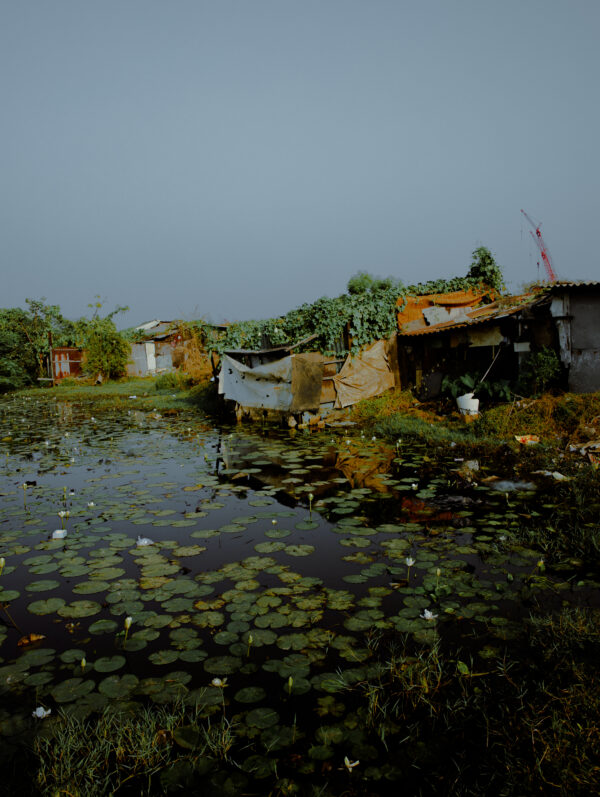
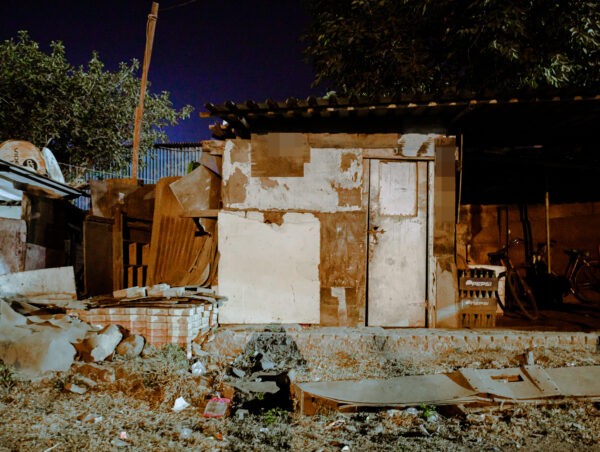
One shipyard worker, who chose to remain anonymous, told Unearthed that an injury earlier this autumn had left him unable to work. The man, in his late forties, had been working in Alang’s shipyards for 30 years, most recently as a gas cutter.
He said he was hurt while cutting a large metal plate near a crane. The crane driver accidentally hit the plate; the worker lost his balance and dropped the plate, crushing three of his toes. He was rushed to hospital, but he lost the toes, and was left with a minor fracture in his ankle and an iron rod implanted in his leg.
So far the worker has received one month’s pay from his company, but he is unsure how much more compensation he will receive.
“I was scared,” he said. “I have a family to feed.”
“If something happens to me, who will take care of my family?”
Sitting with their father at their family home, the man’s son and daughter described the shock they felt when they heard of his injury.
“It was a tough time,” said his 25-year-old son. “He is the only breadwinner of our family, since I used to go to school. After this incident I decided to leave school and support my family financially.”
Speaking to Unearthed several days earlier, Ram Patel, vice president of the Alang-Sosiya Recycling and General Workers Association, said safety improvements in Alang had been made, but workers needed higher pay, benefits and security. The daily wage for workers is 450 Indian rupees per day (roughly £4). Temporary housing provided to migrant workers, for example, often lacks power at night and water is gathered from roadside sources. In case of emergencies, access to a doctor 24-hours a day is not guaranteed at the hospital.
The UK connection
Unearthed analysed NGO Shipbreaking Platform’s database to identify vessels sent for recycling between 2018 and 2022 that were previously owned or run by UK-linked companies.
This identified more than a dozen companies that were registered or headquartered in the UK at the time their former vessels were scrapped in India, Bangladesh or Pakistan.
The UK-linked companies that saw the greatest number of their former vessels scrapped in South Asian yards during that period were the offshore oil services companies Valaris and Subsea7, and the shipping firm Swire and Sons.
At the top of the list was Valaris, a company that provides drilling services to oil companies around the world, including the British multinationals Shell and BP.
Valaris was UK-registered and London-headquartered until a restructuring in May 2021. Between 2018 and May 2021, the company saw 11 of its old drilling rigs and platforms dismantled in Alang. One of those vessels was sent to a yard that had seen two worker deaths the previous year.
Valaris did not respond to requests for comment for this piece, but the company’s sustainability report states that for defunct vessels, “responsible recycling arrangements are made” including “use of an approved ship breaking facility following Hong Kong Convention requirements.”
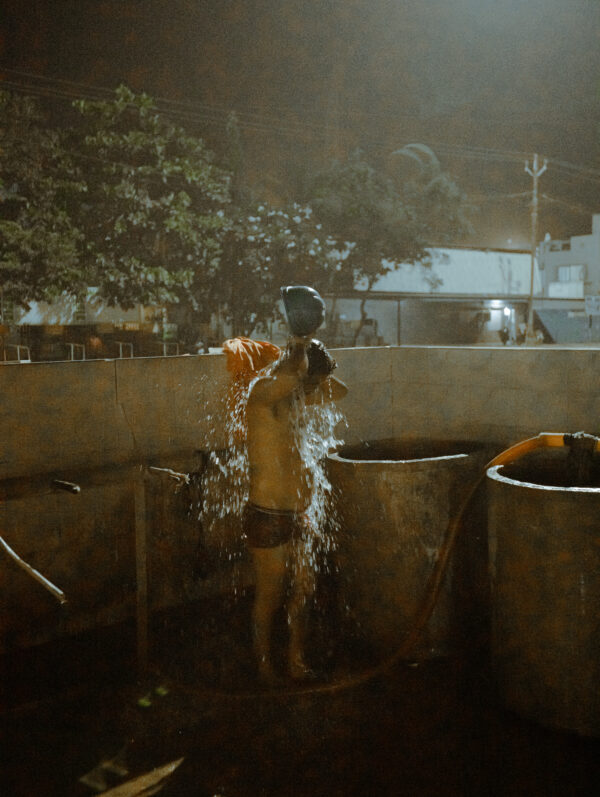
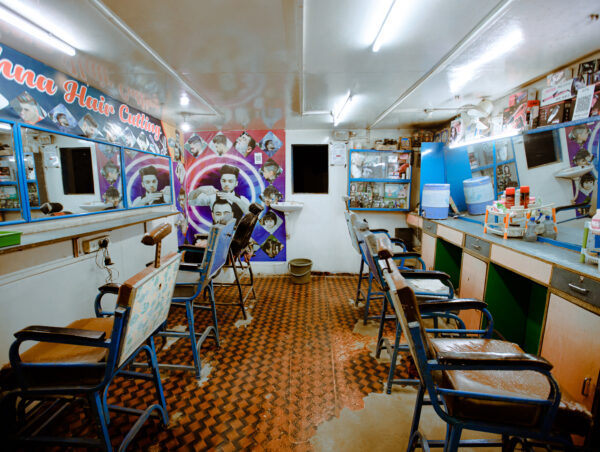
A Shell spokesperson said of contractor vessels: “we seek to work with contractors and suppliers who contribute to sustainable development and are economically, environmentally and socially responsible.”
After Valaris, came Swire & Sons, the UK-based parent company of the conglomerate Swire Group. The group, owned by one of the wealthiest families on the Sunday Times Rich List, saw nine vessels owned by the group scrapped in Alang during the period.
Swire Shipping has a Sustainable Ship Recycling Policy, stating “that all vessels at the end of their working life will be sent for recycling to yards that, as a minimum, adhere to the Hong Kong [Convention]… and that, are certified by a reputable independent third-party.” For EU-flagged ships or those departing from an EU port on their final voyage, compliance with EU Ship Recycling Regulations requires that the ship recycling facility must be on the “white list.“
Despite this policy, the yards where the vessels were dismantled lacked approval from the EU Ship Recycling Regulation, with at least one yard recording a worker fatality during the period.
A Swire Shipping spokesperson said: “We believe that safe, sustainable recycling is the most environmentally responsible way of managing ships at the end of their commercially viable lives, allowing close to 99% of the vessel by weight to be reused ‘as is’ or in reconstituted form.
“There are many ship-recycling facilities in Alang, and we are committed to only working with those that demonstrate a willingness to raise their safety standards in line with international best practice.”
The spokesperson said it had ensured independent monitoring teams were “stationed on-site at all times” in the shipyards, with the “authority to stop work or call for safety time-outs”. They added that this had yielded “encouraging results” with only one injury reported that resulted in time off work in “over 250,000 manhours”.
Unearthed’s analysis found that all of the shipbreaking yards that received Swire vessels had statements of compliance from private certification firms, although one of those yards had also been the site of a worker’s death, in 2018.
Subsea7, another UK-headquartered contractor for offshore oil , saw three of its vessels recycled in Alang between 2018 and 2022, including an offshore support vessel that had previously worked on a BP gas project in Egypt’s Nile Delta.
One of the yards that received a Subsea7 vessel was also the site of a worker death, in 2019.
A Subsea7 spokesperson said: “All of our redundant vessel tonnage is recycled under the Hong Kong Convention or the EU Ship Recycling Regulation. The regulations are dependent on the location the recycling takes place, therefore either one or the other protocol is followed.”
Other companies that were contacted for response told Unearthed that they have no ownership or management authority over the vessels at the time of recycling, and that they only allow vessels to be sold under safe ship recycling in line with the Hong Kong Convention, in compliant yards.
Some said their vessels had been sold in good faith to buyers who they believed intended to keep using them.
One of these was Downing LLP, a British fund manager that had invested in a company called Garthcliff Shipping.
A Downing spokesperson told Unearthed that when Garthcliff sold a container ship called the Sentosa, in 2020, it was given assurances from brokers and legal advisers to the sale that “the purchaser intended to continue to operate the vessel”. In fact, it was scrapped in Gadani, Pakistan, shortly afterwards.
The spokesperson added that both Downing and Garthcliff were “shocked and upset to learn that the vessel had been in fact scrapped only a couple of months later when it came to light in late 2020,” and that there was no question that either “would have condoned a sale which they knew or suspected might result in the scrapping of the vessel in a non-EU Approved yard.”
The company said they were conscious of the poor environmental standards and labour conditions in South Asian yards.
In 2018, Greenpeace International (GPI) issued an apology after allowing one of its former vessels to be sold for scrap in Bangladesh.
GPI had donated the ship, then called the Rainbow Warrior II, to a Bangladeshi medical NGO called Friendship in 2011. It had become unfit to sail on the high seas, but was suitable to be converted to a hospital ship for use on coastal waters and rivers. Friendship used the ship in this way, to provide healthcare to remote communities, until 2018, when it came to the end of its working life and was sent to a Bangladeshi beaching yard.
GPI, which had retained a “veto over any final disposal plan” when it transferred ownership of the ship seven years previously, allowed this to happen – even though it had been one of the first environmental organisations to campaign against beaching. The statement acknowledged this “mistake”, and said there was “no excuse” for the fact that it had failed to consult specialist NGOs Basel Action Network and Shipbreaking Platform.
In the wake of this mistake, GPI developed a new ship recycling policy, based on the principles that vessels should under no circumstances be beached, and should be recycled in line with the best available ship recycling legislation.
This new policy was put into practice for the first time last year, when the Greenpeace vessel the Esperanza was retired and sent for dismantling at an EU approved yard in Spain.
This investigation is based on an Unearthed analysis of NGO Shipbreaking Platform’s database of 3,254 vessels scrapped between 2018 and 2022. NGO Shipbreaking Platform gathers annual datasets on ships above 500 gross tonnes demolished across the world, and this database represents all the ship demolishment recorded by the organisation in the previous half decade.
- First, this dataset was filtered down to those vessels ultimately owned by companies registered or headquartered in the UK (these companies are known as “beneficial owners” in the maritime industry.) This produced a baseline of 85 UK-owned vessels scrapped between 2018 and 2022.
- The vessel list was then filtered down to those scrapped in Bangladesh, India and Pakistan. This identified a subset of 38 vessels owned through a UK-based entity and scrapped in South Asia.
- Each vessel was then manually searched for using the Global Integrated Shipping Information System (GISIS) database and recorded for changes to their names and flag registries, as well as the dates of those changes.
- Each company was analysed for their ultimate controlling party, headquarters and operational centre, in order to determine corporate ties to the UK.
- We removed a small number of vessels for which we could not find evidence that they were owned or run by companies with substantive UK links. We defined substantive links as being headquartered in the UK, having an ultimate parent company registered in the UK, having owners who lived in the UK, or operating predominantly from the UK.
- Each “beneficial owner” company in this dataset was provided a spreadsheet of the vessels that were attributed to them, and given the opportunity to correct any inaccuracies. Dissolved companies could not be reached for comment. In the event that a company provided a substantial reason for why they should not be considered the beneficial owner of a particular vessel, then that vessel was removed from the final analysis.

